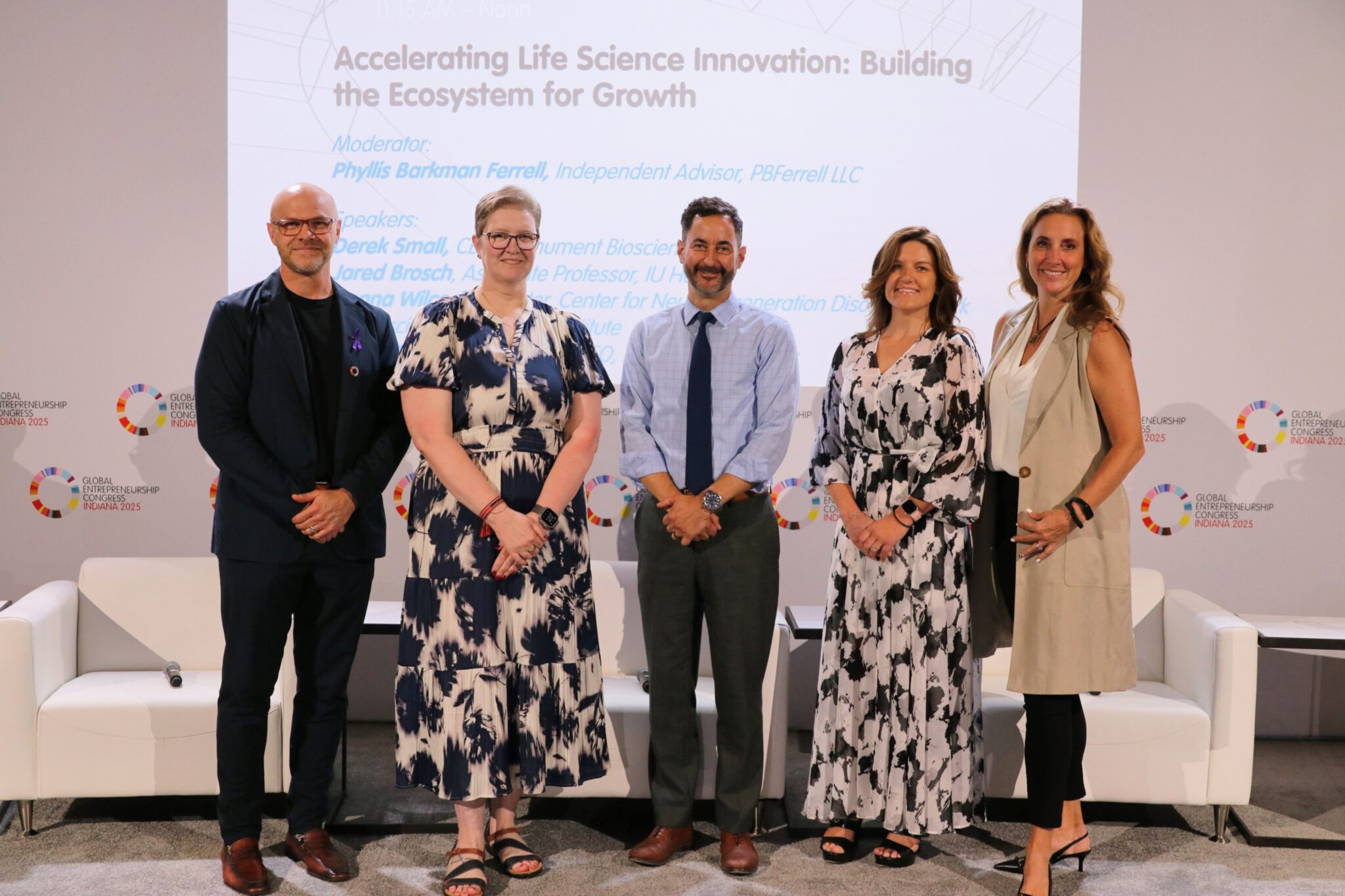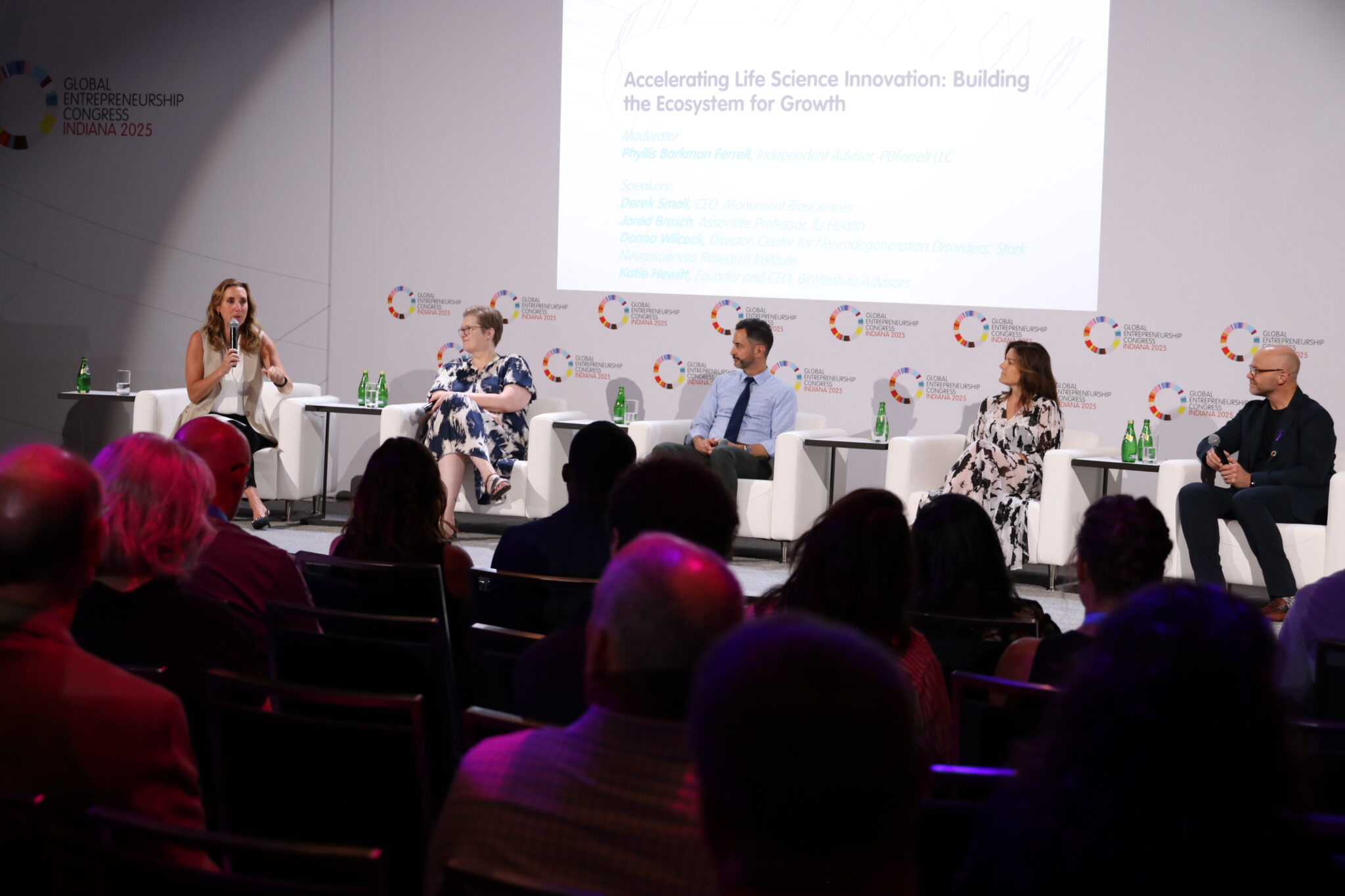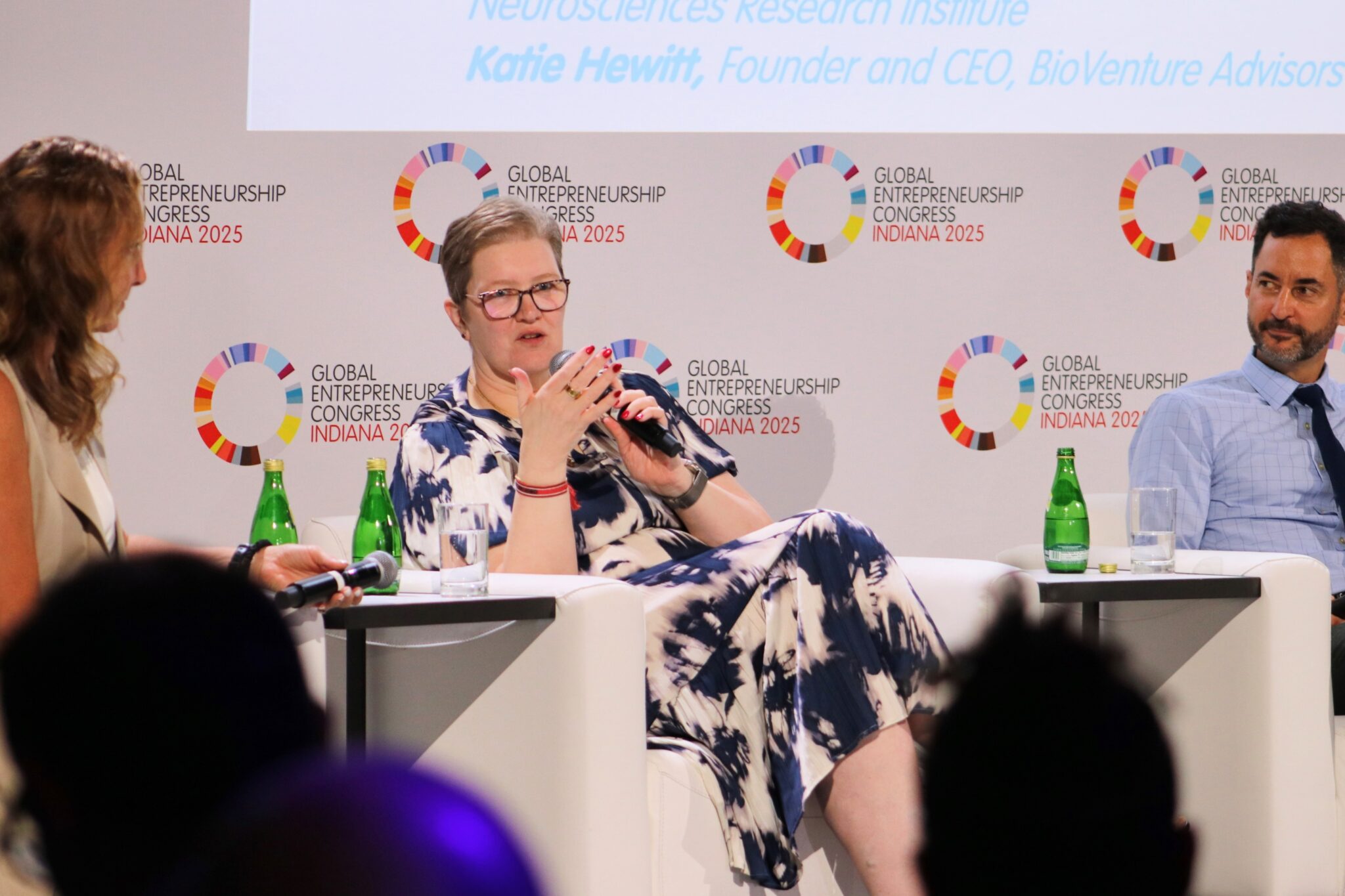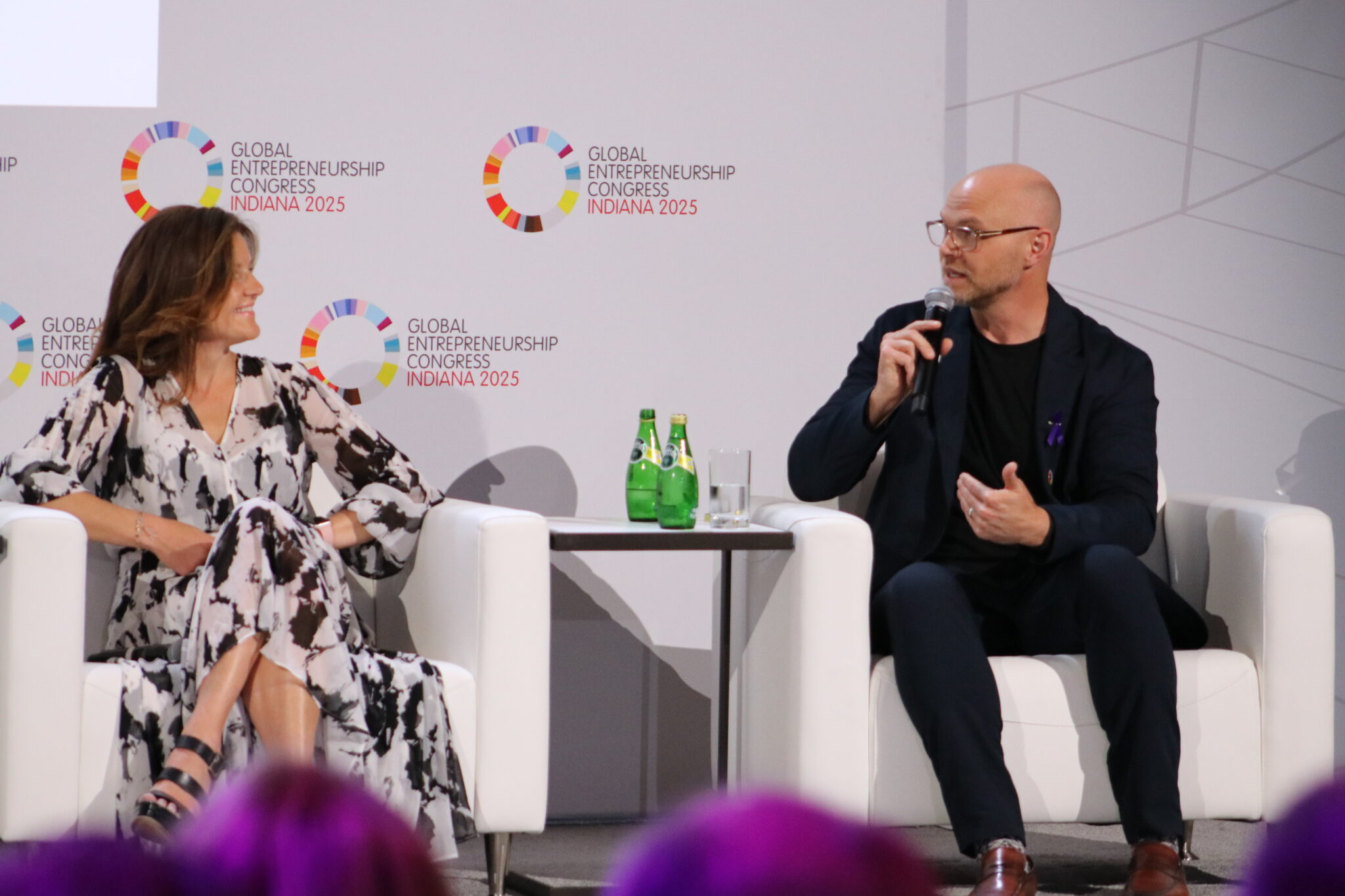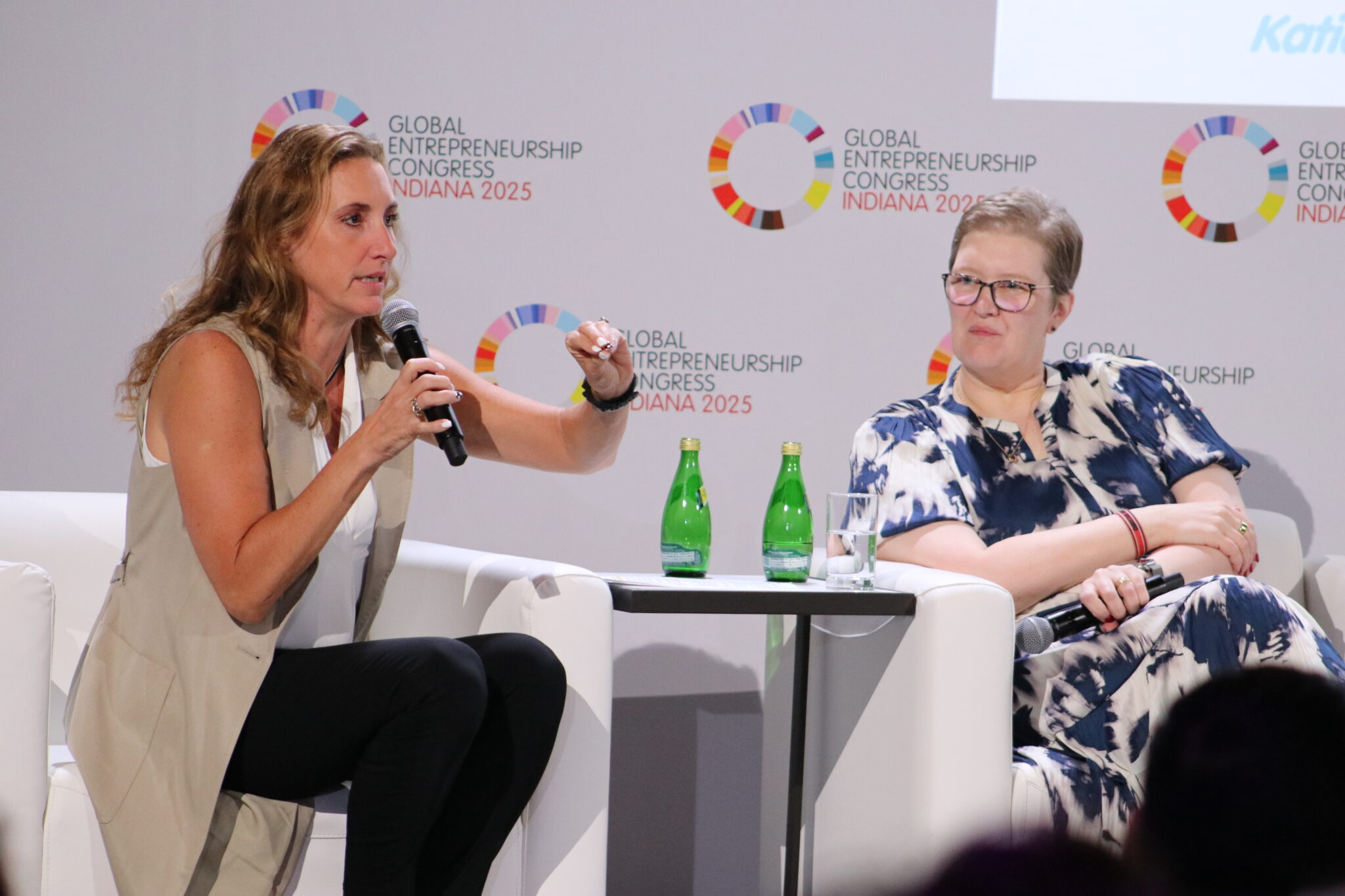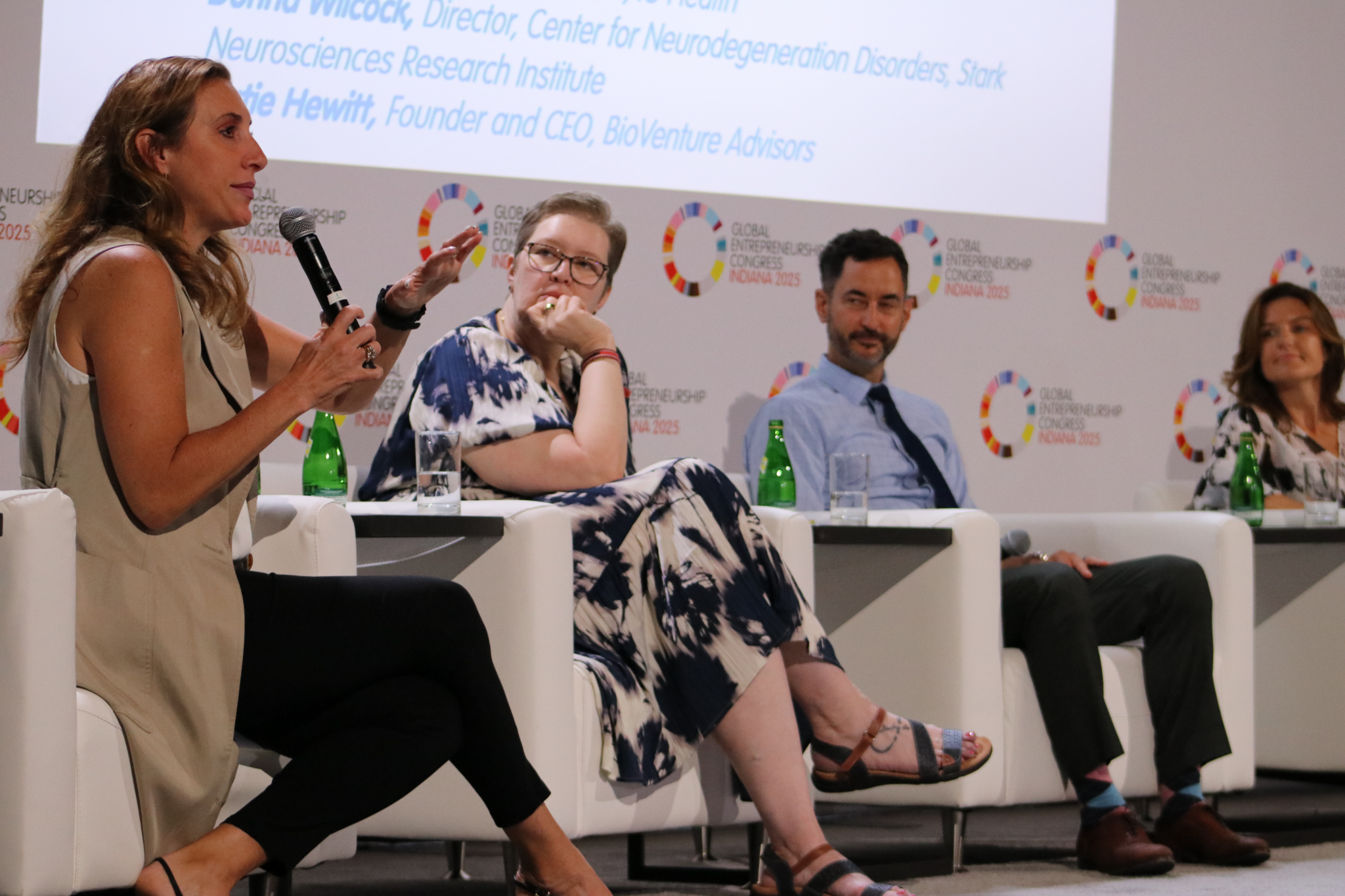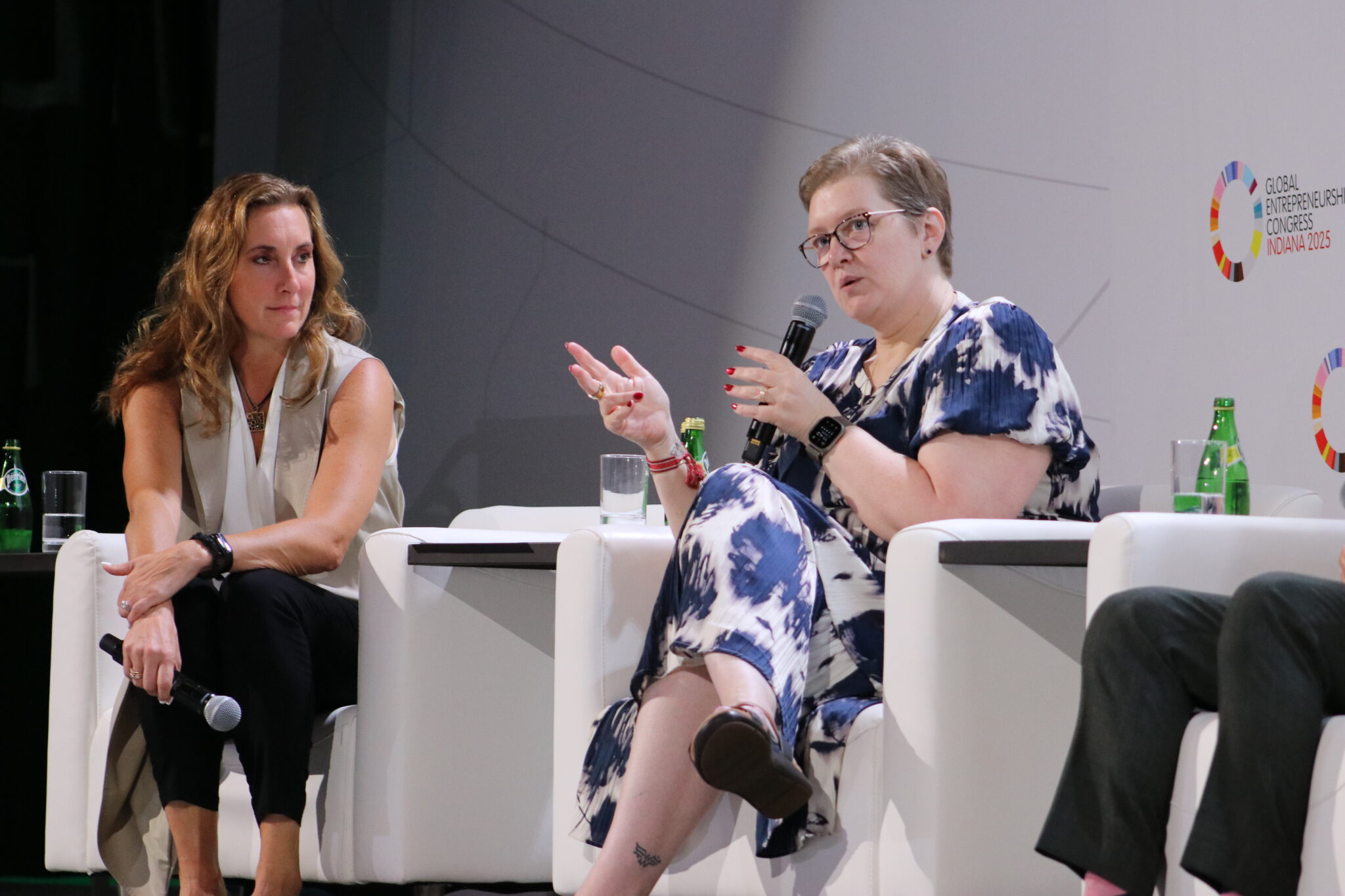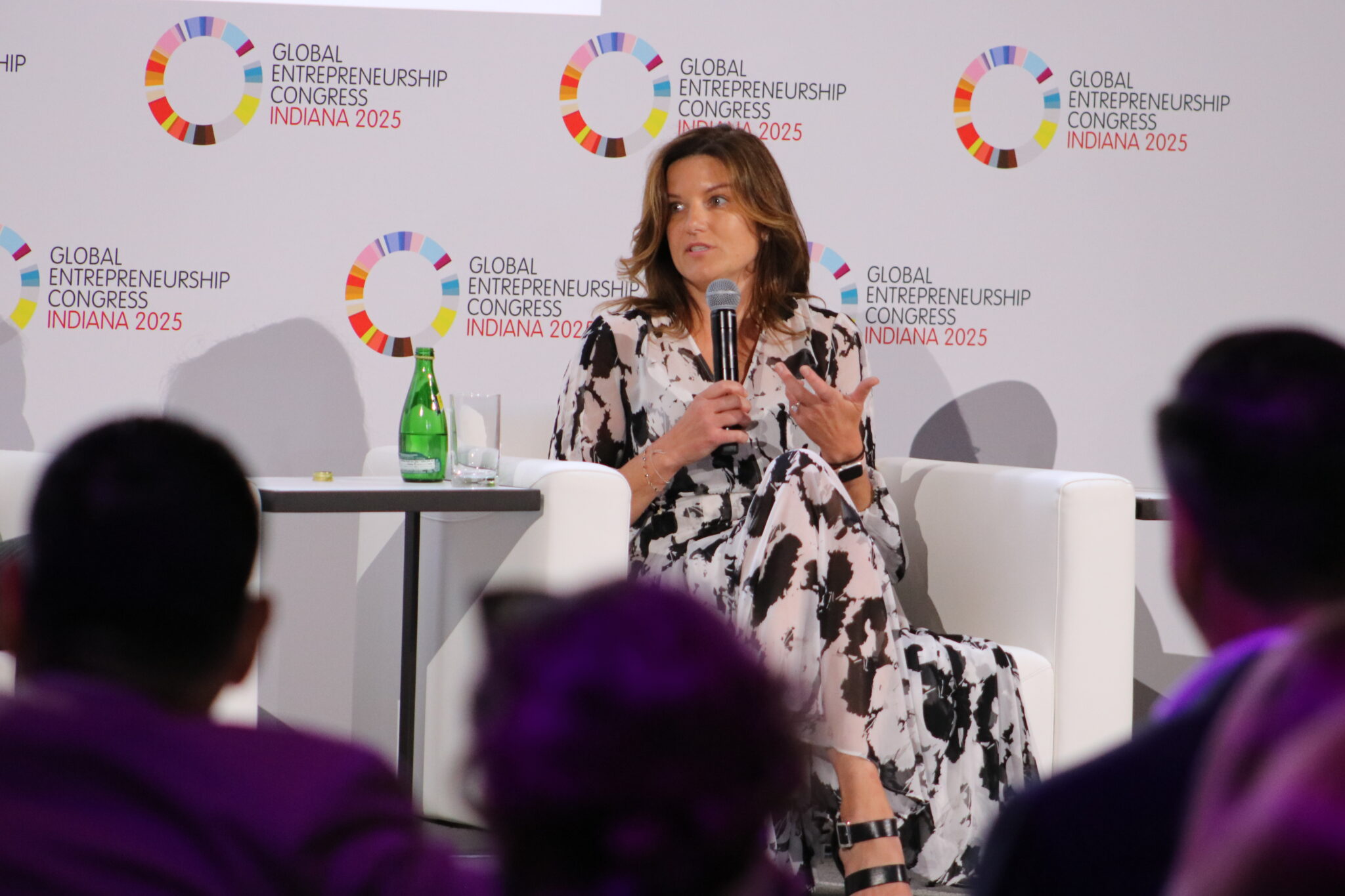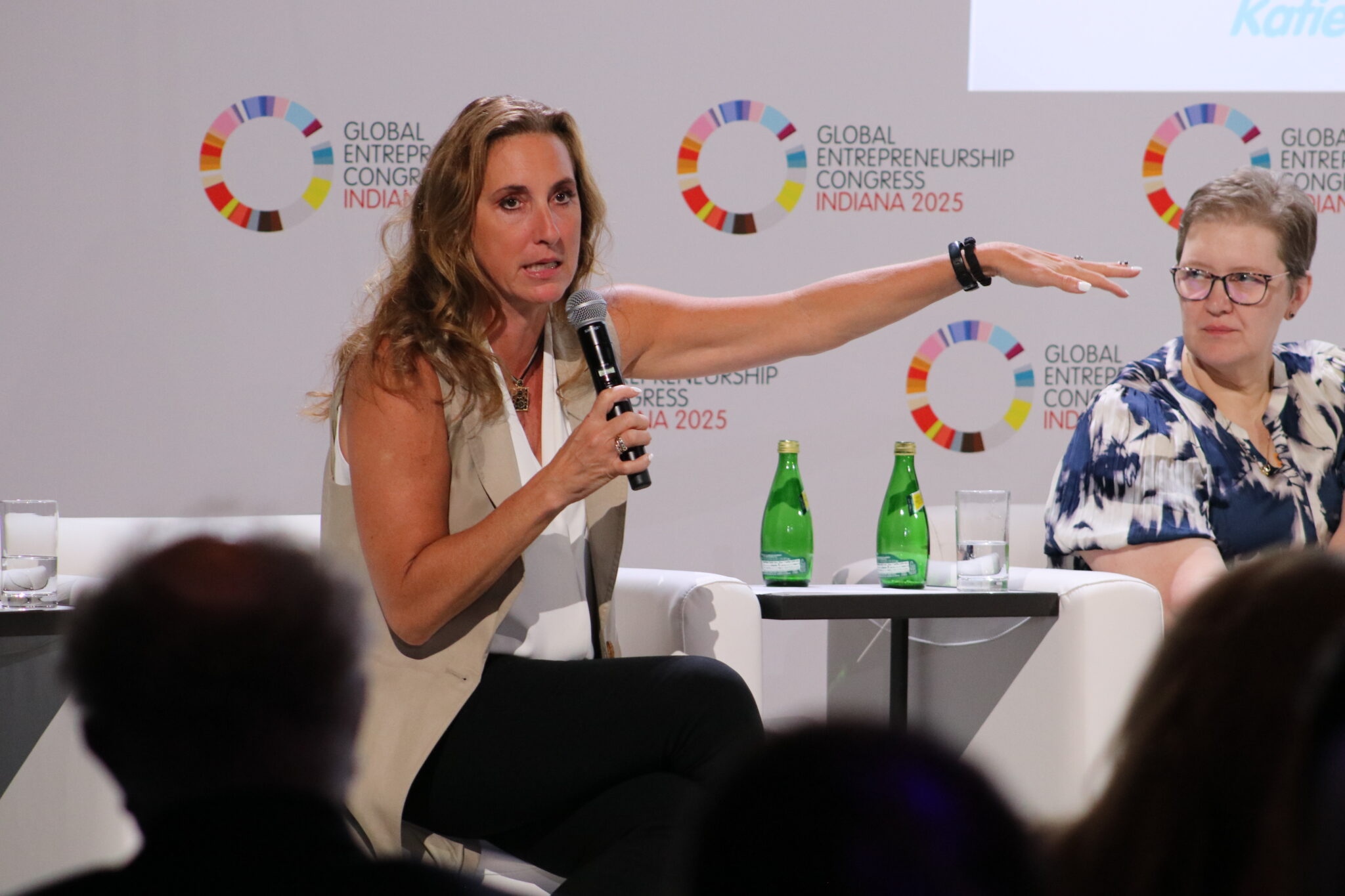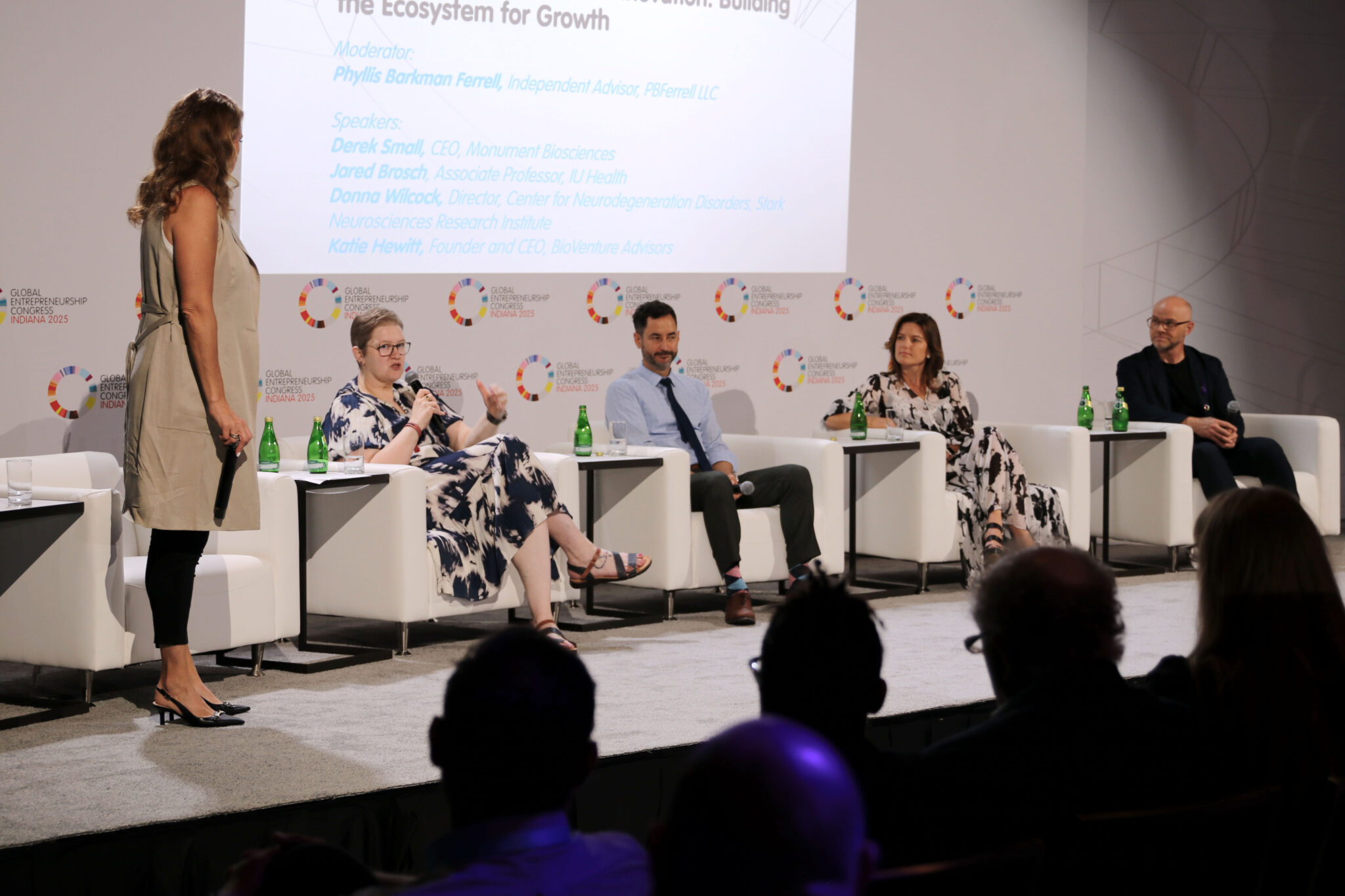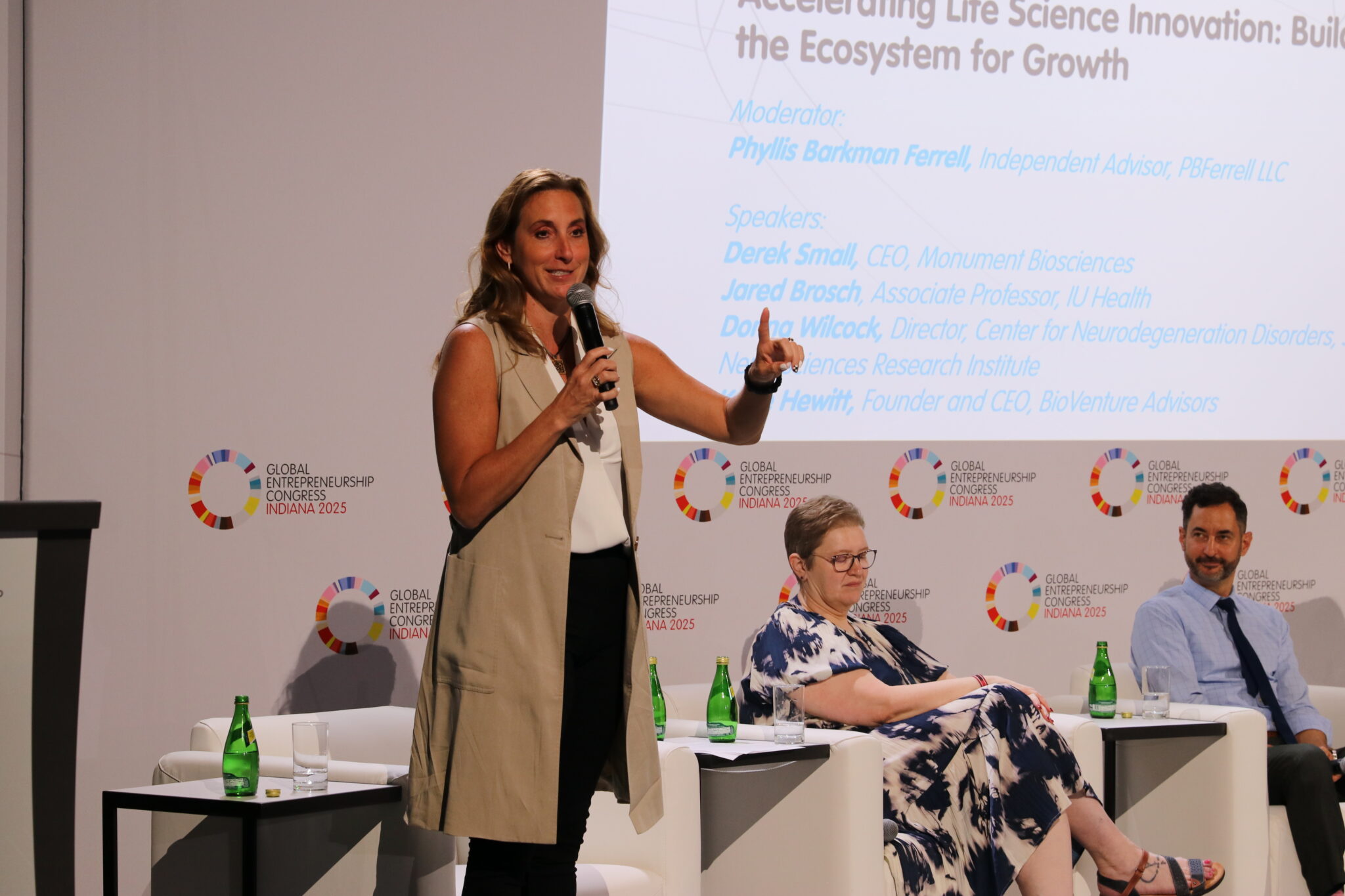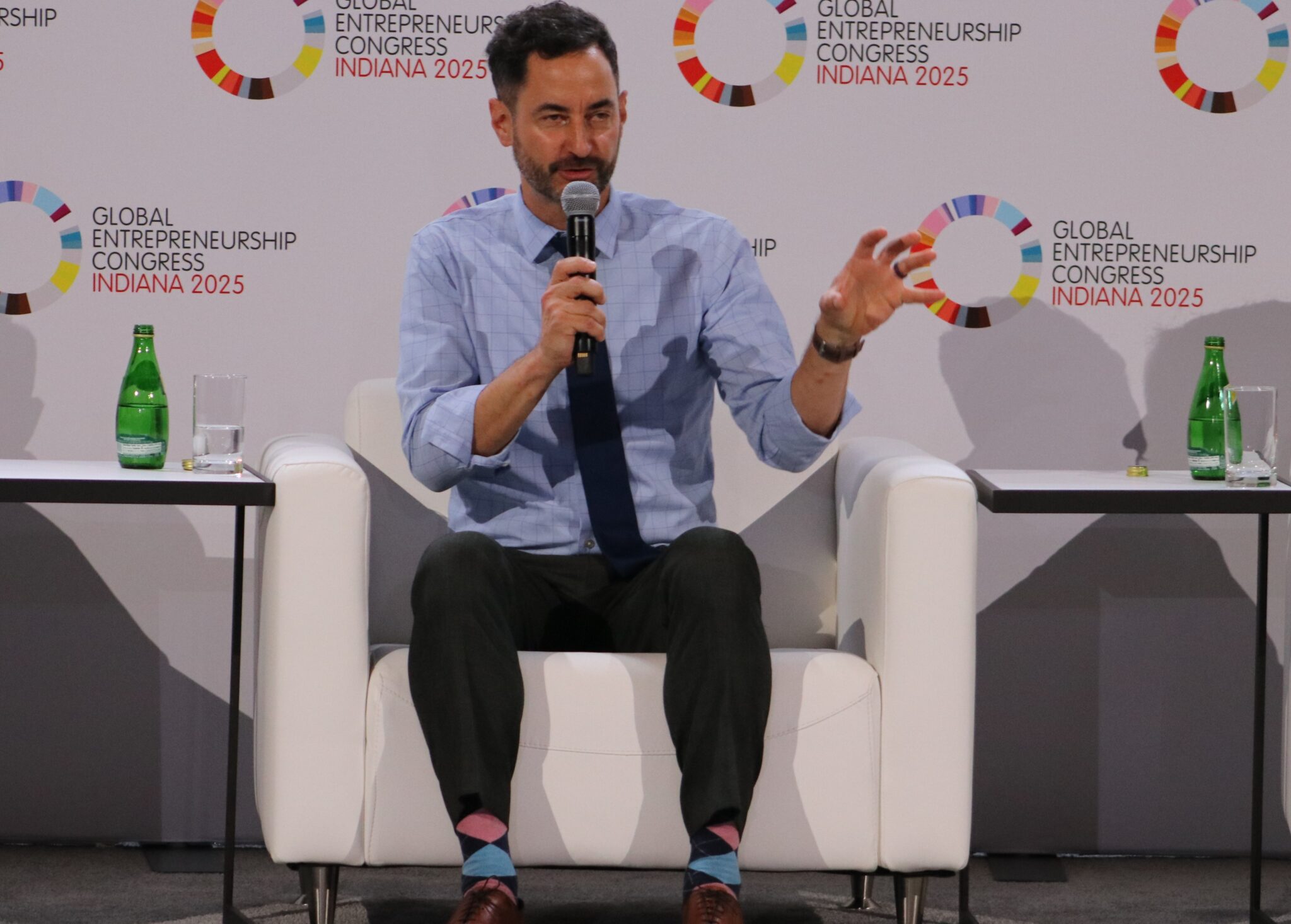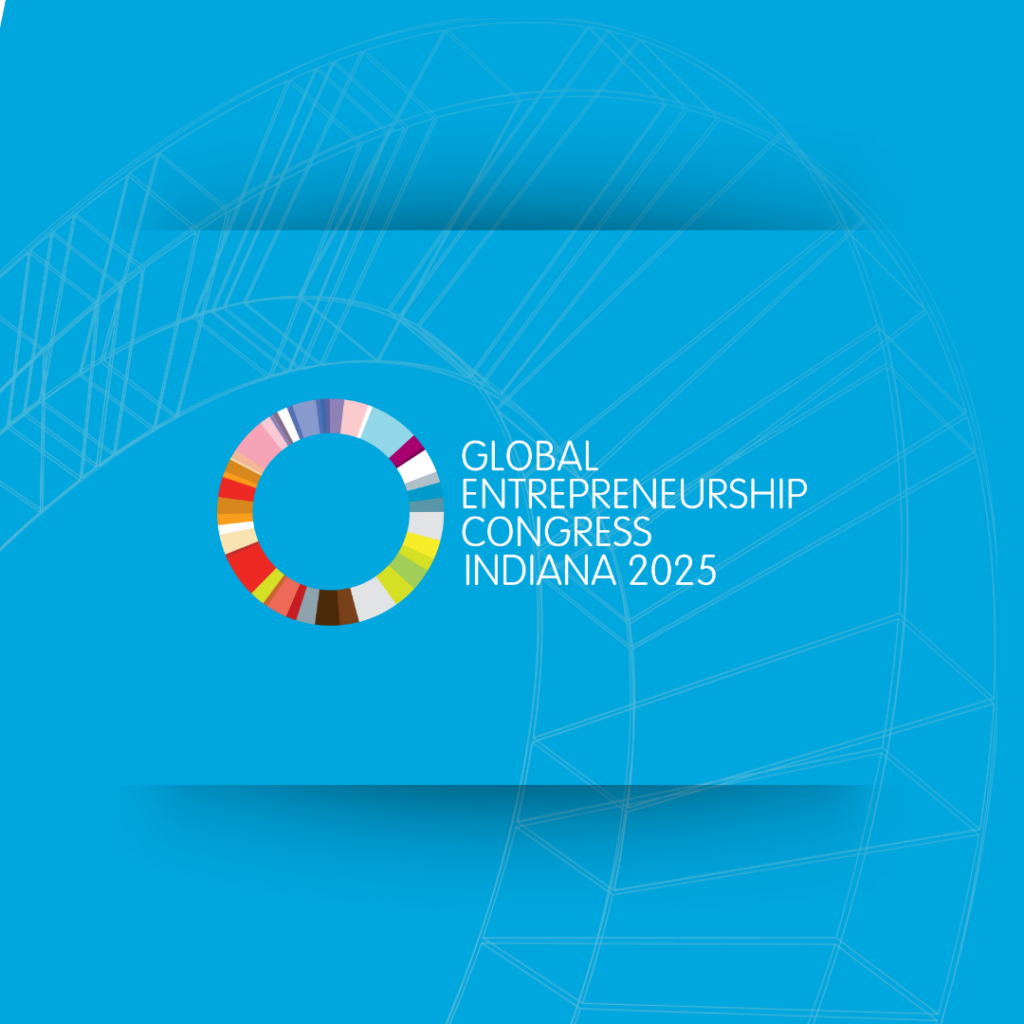Accelerating Life Science Innovation: Building the Ecosystem for Growth
Recap from the 2025 Global Entrepreneurship Congress in Indianapolis
With the right support ecosystem, lab discoveries can become thriving ventures. That was the driving theme behind a featured session curated by BioCrossroads at this year’s Global Entrepreneurship Congress in Indianapolis. The panel, “Accelerating Life Science Innovation: Building the Ecosystem for Growth,” explored how Indiana’s collaborative infrastructure is shaping the future of Alzheimer’s disease research, diagnosis, and care, while offering a powerful model for life sciences innovation more broadly.
The session brought together a high-caliber lineup of leaders working at the intersection of science, clinical care, and entrepreneurship: Dr. Phyllis Barkman Ferrell (moderator), Jared Brosch (IU Health), Katie Hewitt (BioVenture Advisors), Derek Small (Monument Biosciences), and Dr. Donna Wilcock (Stark Neurosciences Research Institute). Designed for entrepreneurs, investors, researchers, and ecosystem builders, the conversation offered actionable insights and a closer look at Indiana’s distinct advantages in this space.
Addressing a Global Crisis with Local Strength
Alzheimer’s disease currently affects six million Americans. That number is projected to double by 2050, posing serious threats to families, health systems, and economies. As one panelist stated, “…if we do not get a handle on very very quickly, we are going to dramatically change not just our families but also our social systems and our financial systems.”
Historically, Alzheimer’s was difficult to diagnose until late in the disease’s progression. Now, that is changing. Indiana is at the forefront of this shift, thanks to a capital-efficient and highly connected ecosystem that brings together research universities, health systems, industry, and entrepreneurial support.
“What makes me hopeful right now is seeing that we have come to the end of the beginning,” one panelist noted. “We now have these disease modifying therapies for the first time ever.”
A New Era for Diagnosis and Care
Indiana University and IU Health exemplify a strong bench-to-bedside model where translational science, clinical care, and research are closely aligned. IU ranks among the top recipients of National Institute on Aging funding, supporting advanced tools like the Model-AD Center and Treat-AD Center. These initiatives are pushing beyond traditional amyloid targets and investing in next generation models and biomarkers, including a new focus on inflammation.
That work is already delivering results. In a major breakthrough, the first early-stage blood test for Alzheimer’s disease, developed by IU neuroscientist Dr. Jeffrey Dage at Stark Neurosciences Research Institute, was recently cleared by the FDA. The test marks a milestone in making Alzheimer’s diagnosis faster, earlier, and more actionable.
On the clinical side, the Brain Health Navigator program is bringing innovation directly to patients. This approach integrates cognitive screening into primary care, helping identify individuals with early signs of impairment and connecting them to specialists, trials, or therapies through a streamlined path. It also reduces friction within the system and supports providers in offering proactive care.
As one panelist put it, “I do not know of a single disease state where the outcomes are better if we catch it later. That is what we need to do with Alzheimer’s disease. So early impact matters. Early detection, accurate diagnosis.”
Integrated Innovation
New digital tools and blood-based biomarkers offer real promise, but the challenge lies in clinical adoption and integration into standard workflows. Physicians need training and support. Patients need clear pathways to access care. Payment systems need to be aligned with innovation.
Roles like the Brain Health Navigator, as well as translational infrastructure like the Clinical and Translational Sciences Institute, play an essential part in helping innovations reach patients more quickly. Organizations like BioCrossroads and the Indiana Biosciences Research Institute are helping entrepreneurs overcome barriers to scale by connecting them to capital, lab space, and partners.
The Investment Outlook
With the arrival of the first disease modifying therapies and expanding public awareness, investor interest in neuroscience is growing. Indiana offers a compelling proposition with its collaborative ecosystem and capital efficiency. However, early-stage companies still face challenges in securing risk-tolerant funding and accessing specialized lab space.
Supporting early innovation requires patient capital, cross-sector coordination, and continued focus on reducing time from discovery to delivery.
Prevention and Empowerment
Cognitive screening is recommended by Medicare for all adults over 65, but it often goes overlooked. During the session, Jared Brosch encouraged attendees to take action by asking their own doctors for a cognitive assessment screening, a simple but powerful step toward prevention. Establishing a cognitive baseline early opens the door for better outcomes. With new diagnostic tools like the FDA-cleared blood test now on the horizon, these screenings will become even more valuable.
Panelists also highlighted the role of lifestyle in brain health. Diet, exercise, social engagement, sleep, and cardiovascular health all play a critical role. According to the Lancet Commission, lifestyle changes can reduce dementia risk by more than 40 percent.
A Shift in the Conversation
What stood out most during the session was the sense of optimism and urgency shared by the panel. Brain health is no longer a taboo topic. Families are talking about it. Clinicians are acting earlier. Investors are paying attention.
“I think that is my hope as well,” one speaker shared. “The experience with my family would have been completely different. And they had to deal with it by themselves in their kitchen, not even talking with their friends and family about it. And here we are at a global entrepreneurship conference with brain health and Alzheimer’s on the main stage.”
What Comes Next
The session made clear that Indiana’s life sciences ecosystem has reached a pivotal moment. The right people, platforms, and partnerships are in place. Progress is happening. And while challenges remain, the future is full of promise.
BioCrossroads was proud to bring this critical conversation to the Global Entrepreneurship Congress and to showcase the strength of our state’s innovation community. We remain committed to building the connections and support systems that help turn lab discoveries into real solutions for patients and families.
